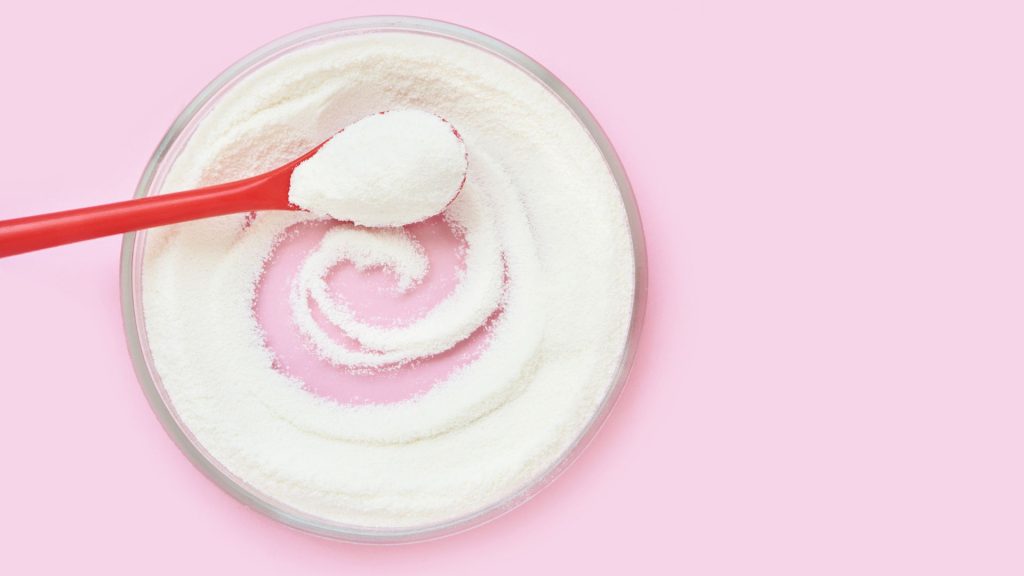All you need to know about Collagen

Introduction
Beauty Vitamin or commonly known as Collagen is the known antidote for eternal beauty and vitality. It plays a paramount role in preserving the structural integrity and resilience of various tissues and organs. In this blog, we will delve into the world of collagen, exploring its meaning, importance for the body, and different types.
Collagen is a fibrous protein that constitutes a major component of the extracellular matrix, the structural framework that supports cells and tissues. It is made of amino acids, particularly glycine, proline, and hydroxyproline, and is popular for its unique triple-helix structure. This is how collagen gets its strength and stability in the structure.
Avertisement
Importance of collagen for the body
Collagen provides structural aid to tissues such as skin, bones, tendons, ligaments, and cartilage. It caters to the elasticity, firmness, and hydration of the skin, promoting a youthful appearance. This is the reason why it’s most sought by beauty brands to include this as a primary ingredient in their products. It also supports wound healing and helps shield organs and blood vessels.
Types of Collagen
There are various types of Collagen but Type I collagen is the most productive. Let us explore the types of bovine collagen:
Type I Collagen
This type of collagen is the most prevailing in the human body and is found in the skin, bones, tendons, ligaments, and organs. It supplies potency, structure, and elasticity to these tissues.
Type II Collagen
Type II collagen is mostly found in cartilage, delivering structural support and shock absorption. It is used in supplements and remedies for joint health and conditions like osteoarthritis.
Type III Collagen
This type of collagen is found in organs, blood vessels, and skin. It works along with Type I collagen to supply structural support and sustain tissue integrity. It caters to the elasticity and suppleness of the skin.
Type V Collagen
Lastly, Type V collagen is present in various tissues, including hair strands, cell surfaces, and the placenta. It helps in regulate cell growth, tissue development, and preserving the structural integrity of these tissues.
Avertisement
Structure and Function of Collagen
Collagen has a special molecular structure that serves as its strength and stability. It is made of three polypeptide chains, known as alpha chains, which twist to form a triple helix. These alpha chains are affluent in amino acids such as glycine, proline, and hydroxyproline. The helical structure allows collagen to resist stretching and deliver structural integrity.
Role of Collagen in Connective Tissues
It is a major part of connective tissues like tendons, ligaments, cartilage, and the extracellular matrix. In these tissues, collagen fibres form a thick network that feeds tensile strength and support. It helps connective tissues resist forces and maintain their shape.
Contribution of Collagen to skin health
It is no secret that there are collagen creams, serums, and supplements to enhance beauty. Collagen plays an essential role in maintaining skin health and appearance. It is accountable for the skin’s elasticity, firmness, and hydration. The fibers in the dermis provide structural aid and provide smooth and youthful complexion. As we age, collagen production declines, leading to the formation of wrinkles, sagging skin, and loss of elasticity.
Collagen’s role in bone, cartilage, and tendons
Not only it aids in physical appearance but also strengthens our body from within. Collagen is necessary for the health and strength of bones, cartilage, and tendons. In bones, collagen supplies a framework for mineralization, serving as their strength and flexibility. Its fibres in cartilage help preserve its structure and cushion joints, reducing friction and promoting smooth movement. Tendons, which connect muscles to bones, depend on collagen for their force and elasticity, facilitating movement and resilience.
Avertisement
Benefits of Bovine Collagen
Now that we know what Collagen is made of and its types, let us explore the benefits of this protein.
Improved skin health and appearance
Going with the trend nowadays, individuals are looking for an option to look young. This is the reason why this protein has made its way into the beauty industry and is bought by many brands. Most of the skincare products have collagen in them to improve skin elasticity and hydration, lowering the occurrence of wrinkles and fine lines. It also helps to increase the water content in the skin, enhancing hydration and enabling a more youthful and plump appearance.
Enhanced joint health and flexibility
After acquiring a youthful appearance, the next thing in line for the sensation is staying fit. Most of the protein powder or supplements contain this vitamin as a primary ingredient. Collagen is rich in amino acids that help joint health by decreasing inflammation and easing joint pain caused by conditions like osteoarthritis. Studies have shown that collagen supplements stimulate the supply of new cartilage, permitting the restoration of joint function and flexibility. It not only takes care of the joints but also helps to improve stamina during an intense workout or training.
Strengthened hair and nails
As we know collagen is called a beauty vitamin for a reason. Hair is another part of beauty that plays a vital role in the beauty industry. From shampoos, conditioners, serums, hair oil, and even hair masks, every product seems to have a portion of this protein. It nourishes essential amino acids that cater to the strength and quality of hair strands, lessening breakage and enriching overall hair health. These amino acids also support nail growth and aid stop nail brittleness, resulting in stronger and healthier nails.
Support for digestive health
The amino acids, such as glycine and proline present in this protein are important for preserving the integrity of the gut lining. This helps protect against leaky gut syndrome and encourages a healthy digestive system. Collagen also enhances digestion by supporting the production of gastric juices and enzymes, which aid in the breakdown and absorption of nutrients. This improves nutrient absorption and overall digestive efficiency.
Avertisement
Conclusion
In conclusion, collagen is a binding protein that aids in preserving the health and functioning of various tissues and organs in the body. You can either incorporate collagen in the form of food or supplements. The collagen-rich foods like bone broth, fish chicken, beef and pork are easily available. If you are vegetarian then you can include leafy greens, citrus fruits, berries and nuts in your diet to fulfill your collagen intake. Stay healthy and stay beautiful!




Responses